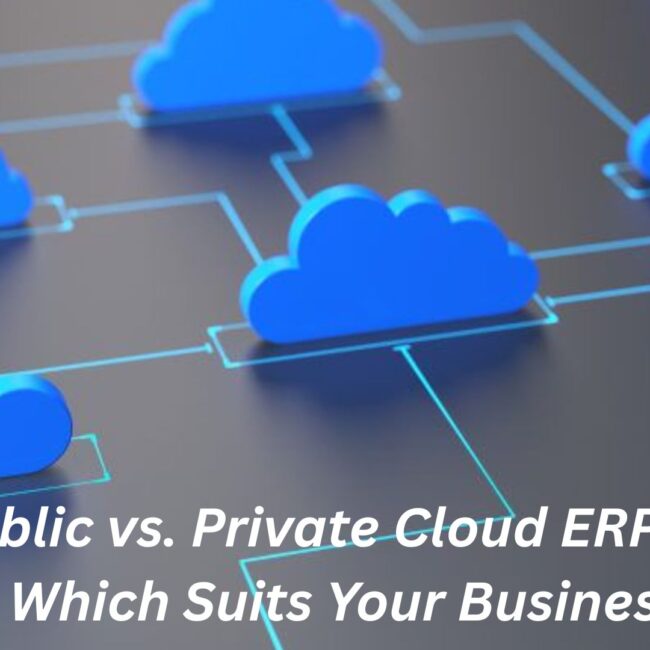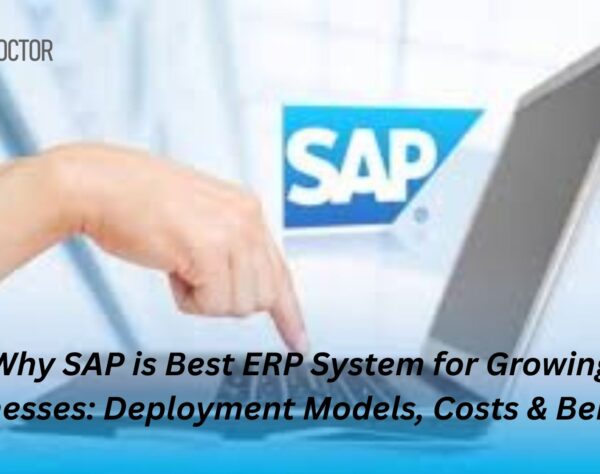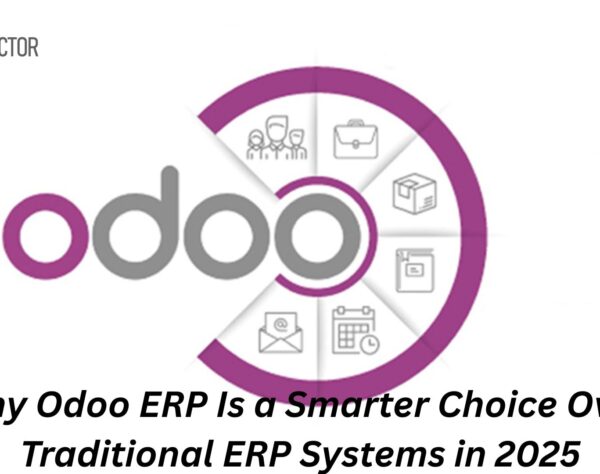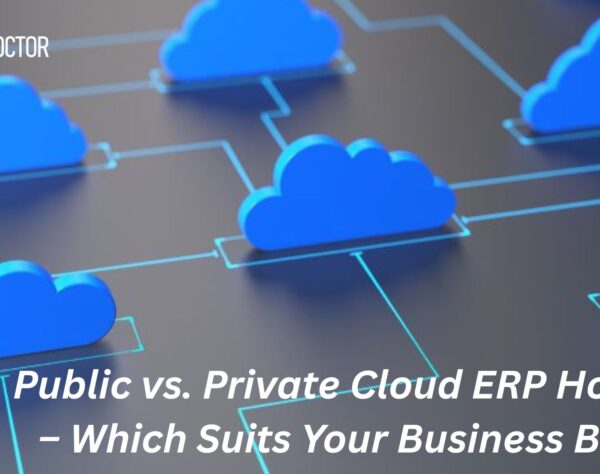
Affordable ERP Options for Growing Companies: A 2025 Comparison
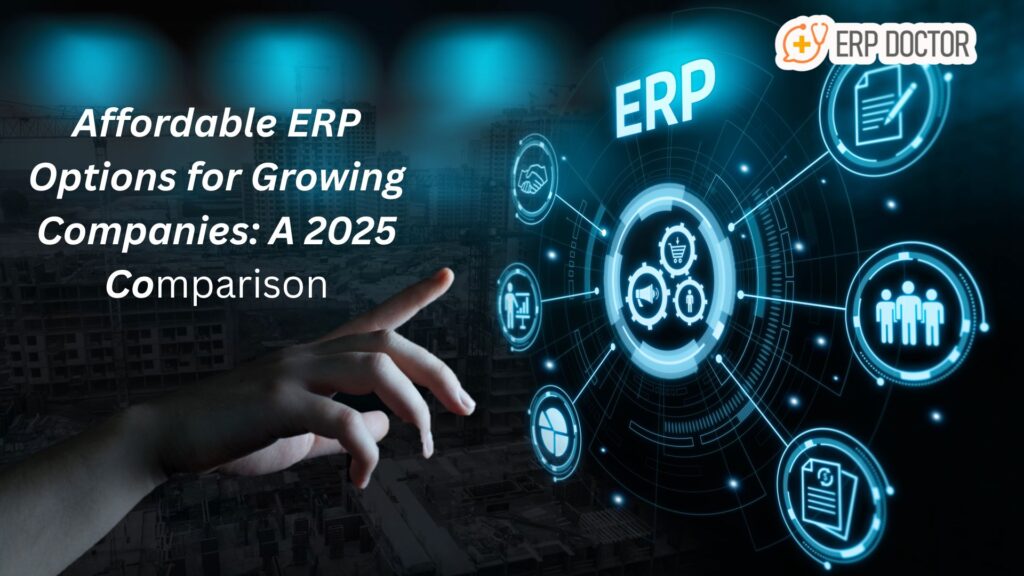
Small Business ERP Guide 2025: Odoo, SAP Business One, and S/4HANA Compared
In 2025, growing businesses face a crucial decision: how to manage operations effectively without overspending on complex enterprise software. The right affordable ERP solution can streamline finance, supply chain, HR, and customer management — all within a scalable, budget-conscious platform.
In this guide, we compare SAP Business One, Odoo, and SAP S/4HANA — three popular ERP platforms with distinct capabilities and pricing models. Let’s explore which is the best ERP system for your growing company.
🔍 Why ERP Matters for Growing Businesses
As your company scales, spreadsheets and disconnected systems can cause inefficiencies, errors, and missed opportunities. Enterprise Resource Planning (ERP) software centralizes operations, improves data accuracy, and supports growth.
But many business owners worry ERP means enterprise-level costs. That’s not always the case — especially with flexible, cloud-ready solutions available today.
💼 ERP Systems Compared: SAP Business One vs Odoo vs SAP S/4HANA
| Feature / ERP | SAP Business One | Odoo | SAP S/4HANA (Cloud Edition) |
|---|---|---|---|
| Target Market | Small & midsize businesses | Startups to mid-sized firms | Large enterprises or fast-growing companies |
| Deployment | On-premise or Cloud | Cloud, On-premise, Hybrid | Cloud (Public/Private) |
| Pricing | From ~$100/user/month (varies by partner) | Free (Community) or ~$25/user/month (Enterprise) | Subscription-based; typically premium pricing |
| Scalability | Moderate | High – Modular & customizable | Very High – Designed for global scale |
| Key Modules | Accounting, Sales, CRM, Inventory, Purchasing | CRM, eCommerce, Accounting, Manufacturing, HR | Finance, Logistics, HR, Manufacturing, AI-integrated analytics |
| Ease of Use | User-friendly with traditional UI | Modern, customizable UI | Enterprise-grade with steep learning curve |
| Best For | Established SMEs | Cost-conscious startups & SMEs | Rapidly scaling or large businesses with complex needs |
🌟 1. SAP Business One: Proven ERP for Small to Mid-sized Enterprises
SAP Business One is SAP’s answer for growing companies seeking reliable ERP without the complexity of full-scale enterprise systems.
✅ Key Features:
- Integrated CRM, purchasing, inventory, finance, and manufacturing
- Localized for over 40+ countries
- Seamless integration with Microsoft Office & SAP ecosystem
👍 Best For:
Small to medium-sized companies that want a trusted ERP from a global brand with room to grow but not the full complexity of SAP S/4HANA.
🌟 2. Odoo: Affordable, Modular, and Open-Source ERP
Odoo has exploded in popularity among startups and growing businesses, thanks to its low cost, modular design, and open-source flexibility.
✅ Key Features:
- 30+ core apps and 20,000+ community modules
- Easy customization, API integration, and automation
- Modern UI and mobile-ready apps
👍 Best For:
Startups and small businesses seeking maximum flexibility and affordability. Great for companies that want to start small and scale up with apps only as needed.
🌟 3. SAP S/4HANA Cloud: Enterprise-Level Power with Cloud Scalability
SAP S/4HANA is SAP’s flagship next-gen cloud ERP, powered by in-memory computing and real-time analytics. While traditionally seen as an enterprise solution, SAP S/4HANA Cloud, Public Edition is now more accessible to high-growth companies looking to scale rapidly.
✅ Key Features:
- Real-time financial and operational data processing
- AI-driven insights, integrated analytics, and automation
- Deep functionality across industries and business units
👍 Best For:
Fast-growing companies or mid-sized enterprises that need enterprise-grade capabilities, global compliance, and advanced analytics.
💡 Choosing the Right ERP for Your Growth Stage
| Business Stage | Best Fit ERP |
|---|---|
| Startup (1–20 employees) | Odoo (Community) |
| Small Business (20–100 employees) | Odoo Enterprise or SAP Business One |
| Mid-Market (100–500 employees) | SAP Business One or SAP S/4HANA Cloud (Public Edition) |
| Scaling Rapidly / Complex Ops | SAP S/4HANA Cloud |
✅ Final Thoughts: Which ERP is Right for You?
If you’re a startup or small company, Odoo’s free version or affordable enterprise tier is a powerful, flexible starting point.
For mature SMEs, SAP Business One offers brand recognition, reliability, and great partner support.
If you’re preparing to scale aggressively, handle international operations, or want real-time, AI-driven decision-making, SAP S/4HANA Cloud is a strong (though more expensive) contender.
No matter where you are in your growth journey, choosing the right ERP now can set your business up for years of success.
❓ Frequently Asked Questions (FAQ)
1. What is the most affordable ERP solution for small businesses?
Odoo is the most affordable, as it’s completely free and open source. It’s ideal for startups or small businesses with technical resources who want to customize their ERP without licensing costs.
2. Is SAP Business One suitable for small companies?
Yes. SAP Business One is specifically designed for small to medium-sized businesses. It offers a simplified version of SAP’s enterprise solutions at a more accessible price and with features tailored to SMEs.
3. What’s the difference between SAP Business One and SAP S/4HANA?
- SAP Business One targets small to mid-sized businesses and offers core ERP functionality.
- SAP S/4HANA is an enterprise-grade ERP for large or rapidly growing companies needing high scalability, real-time analytics, and complex multi-entity operations.
4. Is Odoo reliable for growing businesses?
Yes. Odoo is modular, scalable, and has thousands of apps to suit many business needs. It’s trusted by thousands of companies worldwide, and its Enterprise edition offers professional support, making it viable even for mid-sized firms.
5. Which ERP is better for cloud deployment?
- Odoo offers both cloud and on-premise versions with flexible deployment.
- SAP S/4HANA Cloud is a true cloud-native ERP with advanced capabilities.
- SAP Business One also supports cloud hosting via partners, but it’s more often deployed on-premise.



